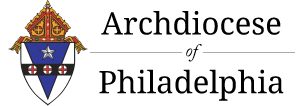
Keynote Addresses and Presentations
Archbishop Chaput’s Address at Salinas Men’s Conference: Why Men Matter
We men – all of us, both clergy and lay — bear a special responsibility because the Gospel tasks us as leaders.
Archbishop Chaput’s Address at Catholic University: Humanae Vitae and its Legacy, April 4, 2018
Thirty years ago, in remarks to brother bishops, Joseph Ratzinger noted that life in the modern Church comes with a recurring litany of complaints. The complaints are familiar. They never vary. They target the Catholic teachings on contraception, sexual morality, and the nature of conscience and freedom. And each individual complaint rests upon a commonly […]
Archbishop Chaput’s Address at Villanova University: Things to Come: Faith, state and society in a new world
We live in complicated times. It’s easy to be angry and distressed. Earlier this month a friend sent me an email with a message of exactly four syllables: “Worse is better.” He was quoting a famous line from Vladimir Lenin. And his message did have some merit. The worse things get, the more painful they […]
Archbishop Chaput’s Homily at the ‘Families Fully Alive’ Conference in Fairbanks, Alaska: February 10, 2018
A friend of mine likes to say that life in a modern country, at least a wealthy one like the United States, isn’t a real life at all. It can be very pleasant. It can be very interesting. But it isn’t real – real in the sense of actions having consequences.
Archbishop Chaput’s Homily at the ‘Families Fully Alive’ Conference in Fairbanks, Alaska: February 9, 2018
The Gospel passage we’ve just heard is unique to St. Luke. He alone of the four evangelists writes about the boyhood of Jesus. And these 12 verses are the full account. It’s a rich text for us to consider today and for every family to hold dear.
Archbishop Chaput’s Address at the National Assembly of Filipino Priests USA: Amoris Laetitia and the Nature of Mercy
Amoris Laetitia has passages of great wisdom and beauty on marriage and on family life. And it has other passages that have caused some obvious controversy. The controversy has obscured much of the good in the document. So we need to engage the text with open hearts and the discipline of clear thinking.
Archbishop Chaput’s Address at the Napa Institute Conference—What’s Next: Catholics, America, and a World Made New
WHAT’S NEXT: CATHOLICS, AMERICA, AND A WORLD MADE NEW +Charles J. Chaput, O.F.M. Cap. Napa Institute, 7.27.17 When you spend a couple of years writing a book like Strangers in a Strange Land, your brain ends up as a magnet. It starts collecting all sorts of data like little metal slivers that seem important, but […]
Remarks at the Archbishop Fulton J. Sheen Center for Thought and Culture, Archbishop Charles J. Chaput, O.F.M. Cap., February 27, 2017
Archbishop Chaput took part in a program at the Archbishop Fulton J. Sheen Center for Thought and Culture in New York City to discuss his new book, Strangers in a Strange Land: Living the Catholic Faith in a Post-Christian World. The theme of the Archbishop’s talk was, “Faith in the Future.” The full text of […]
Arzobispo Charles Chaput en el Simposio de Obispos de la Universidad de Notre Dame: Recordando quiénes somos y a qué historia pertenecemos
Quiero hablar primero acerca de las personas en que nos hemos convertido como católicos estadounidenses. Pasaré entonces a cómo y por qué llegamos a donde estamos. Finalmente sugeriré lo que debemos hacer al respecto, no sólo como individuos sino, más importantemente aún, como Iglesia. Necesitamos recuperar nuestra identidad como comunidad creyente. Y creo que una buena manera de comenzar a hacerlo es con el “contenido catequético” de nuestro actual momento político.
Archbishop Chaput’s Address at the University of Notre Dame 2016 Bishops’ Symposium, “Reclaiming the Church for the Catholic Imagination.”
I want to speak first about the people we’ve become as American Catholics. Then I’ll turn to how and why we got where we are. Finally I’ll suggest what we need to do about it, not merely as individuals, but more importantly as a Church. We need to recover our identity as a believing community. And I think a good way to begin doing that is with the “catechetical content” of our current political moment.





